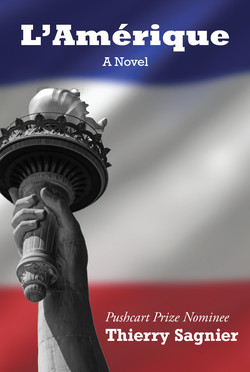Читать книгу L'Amerique - Thierry Sagnier - Страница 16
На сайте Литреса книга снята с продажи.
ОглавлениеChapter 10
Papa had found work as a freelance writer for a number of British newspapers. He had what he called “an easy style” and liked human interest stories, though most of what he filed was news. He wrote of the August strikes to protest a change in retirement age, of Charles de Gaulle and the newly formed Republican Union for Social Action, and of the first French airborne attack against Dien Bien Phu in what soon would be known as Vietnam. At the table, he tried explaining all of these varied interests and stories to Maman and Jeanot, and Jeanot, determined to be a man of the world like his magnificent Papa, pretended to be interested, but could never manage it for very long.
While Papa wrote and Maman sewed, both mostly oblivious to the complicated emotions of their employees, Jeanot watched as both Jean-Sylvain and Cécile vied for his Papa’s attention.
Jean-Sylvain’s tactics relied on appealing to Papa’s pride. Papa was a handsome man; inches taller than the average Frenchman, and he knew it. He didn’t smoke and his clothes never smelled like Gauloise butts, like so many of the fathers of Jeanot’s friends. Papa had a marvelous speaking voice, an easy gait and a winner’s Yankee smile. He’d been in the war, too; a Free French who actually knew Le Général, a decorated fighter too modest to ever mention his medals. Papa was close to being the perfect man, thought Jeanot, and Jean-Sylvain obviously agreed.
Under the pretext of designing some new men’s apparel, Jean-Sylvain took Papa’s measurements efficiently and without any hint of pleasure. He measured Papa’s shoulders, his chest, the length of his arms, and with trembling fingers the inseam of his trousers. He casually asked whether Papa dressed left or right, and when Papa admitted that he didn’t know what that meant, Jean-Sylvain explained with suspicious airiness that it had to do with Papa’s private parts. In which pant leg did Papa put them when he dressed in the morning? “The left,” Papa answered. Jean-Sylvain and Jeanot both saw Papa blush and Jeanot wasn’t too pleased with that. Jean-Sylvain remained stone-faced.
Cécile took a remarkably similar tack, appealing to Papa’s pride as well. Papa, who had visited America before the war, had decided to teach his family basic English. Cécile spoke a smattering of English. She’d spent a week in London before the war, she said, and for three days taken a British lover of little skills. Now, she sought Papa out at every opportunity, asking for the translation of this word or that. Papa said she had a good accent, and soon they were exchanging greetings, jokes and asides in English.
Papa may have been impressed, but Jeanot, who now found Cécile completely unattractive, was not.
